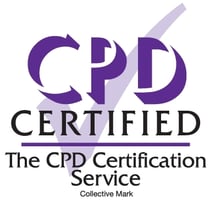Protect your organisation with our GDPR compliance training
Ensure your organisation understands how to handle personal data responsibly. With our comprehensive data protection training package, your employees will learn the principles of GDPR, lawful data processing, and managing special category data.

The importance of keeping your data governance on track
€1.2 billion
The Irish Data Protection Commission (DPC) imposed a GDPR enforcement fine of €1.2 billion on US tech giant Meta in May 2023.
£750,000
The average UK fine from the ICO in 2024 was £154,000, with the largest being £750,000 against PSNI.
€310 million
The largest GDPR fine of 2024 was issued by the PDC to social media platform LinkedIn, a total of €310 million.

Avoid hefty fines and maintain customer trust
Learn the best methods for training data privacy and protection throughout your company. With our flexible approach to learning, you can choose from proven, off-the-shelf courses or customise our training solutions to suit your needs.
Our ready-made data protection training package teaches your team the essentials of data protection, from GDPR principles to communications regulations and personal data breaches. By choosing Skillcast, you’ll gain access to tools to measure learning effectiveness, address learning gaps, and regularly updated courses delivered in various formats. Want a more customisable approach to suit your company’s requirements? Our bespoke course options could be a good fit.
The new gamified assessment showed the team that knowledge was retained from year to year, which allowed them to focus their attention on more targeted training. It engaged learners as this was seen internally as a new and positive approach to training, and allowed the team to build better relationships as a result of the two points above.
Business Risk Manager,
Investment Management Firm

Data Protection
Data protection relates to how all organisations collect, use, and store personal and sensitive data.
Read more
Data Protection
Data protection relates to how personal and sensitive data is collected, used and stored by all organisations.
Understanding the GDPR
Bring "Understanding the GDPR" online learning to life using animation characters and storylines.
Experience compliance made simple with Skillcast
Book your demoPersonal Data Breaches
Bring "Personal Data Breaches" online training to life using animation characters and storylines.
Data Protection Impact Assessments
Bring "Data Protection Impact Assessments" online training to life using animation characters and storylines.

Manage your compliance learning with confidence
The Skillcast Portal provides you with the essentials for delivering business-wide compliance training. With the option to enhance your learning with our comprehensive Learning Management System (or use your own), you’ll have the flexibility to put a training plan in place that’s right for you. Tap into ready-made courses or customise existing solutions to suit your unique needs, if required.
Ready to simplify your compliance efforts?
Speak to our team to discuss your options. Whether you require a ready-made course or want to take advantage of our customisation options, we can help. By booking one of our demos, you'll experience our tools first-hand and see that we're the right fit. If you're a business with fewer than 50 employees, head to our 'Getting Started' page to learn more about CoreCompliance, a solution that equips smaller teams with the compliance essentials.
Common data protection course questions
Data Protection (GDPR)
Common FAQs